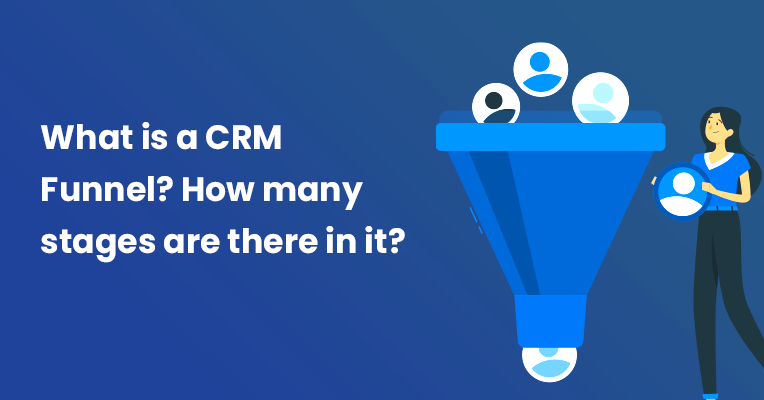Curious to learn about CRM funnels and their impact on your sales and marketing endeavors? Look no further! At Meritto (formerly NoPaperForms), our objective is to empower you with comprehensive knowledge on this topic. In this article, we will demystify what a CRM funnel entails, its stages, and how it operates. Our insights will help you effectively nurture leads, boost conversions, and achieve remarkable outcomes. Join us as we explore the power of CRM funnels and provide valuable tips to enhance your sales and marketing efforts. Let’s dive in and unlock the potential of this indispensable tool.
What is a CRM funnel?
A CRM funnel, also known as a sales funnel, is a visual representation of the different stages that a potential customer goes through as they engage with a business. The funnel typically includes several stages, such as awareness, consideration, and decision, that are designed to guide the potential customer through the process of becoming a paying customer.
- Awareness: The first stage of the funnel is awareness, where the potential customer becomes aware of the business and its products or services.
- Interest: In the interest stage, the potential customer expresses interest in the business by visiting its website, requesting more information, or signing up for a newsletter.
- Consideration: In the consideration stage, the potential customer evaluates the business and its products or services to determine if they are a good fit.
- Purchase: In the purchase stage, the potential customer makes a decision to buy the product or service.
- Retention: In the retention stage, the customer is encouraged to return to the business and make additional purchases.
- Advocacy: In the advocacy stage, the customer becomes an advocate for the business, promoting it to others and helping to generate new leads.
The CRM funnel is an important concept in customer relationship management (CRM) because it helps businesses to understand and track the progress of their potential customers as they move through the sales process. By analyzing data on each stage of the funnel, businesses can identify where potential customers are getting stuck and take steps to improve the customer experience and increase conversions.
What are the Components of an Education CRM Funnel?
The components of an education CRM funnel can vary depending on the specific system and vendor, but generally, it includes the following stages:
- Prospect: This is the initial stage of the funnel where potential students become aware of the educational institution and its programs.
- Inquiry: In this stage, potential students express interest in the institution by requesting more information, scheduling a campus visit, or signing up for a newsletter.
- Application: In this stage, potential students submit an application to the institution and are evaluated for admission.
- Enrollment: In this stage, students are accepted and enrolled in the institution.
- Engagement: In this stage, students are engaged and connected to the institution through various activities such as online classes, office hours, and student support sessions to keep them satisfied and connected.
- Retention: In this stage of the CRM funnel, the institution works to retain students by providing support and resources to help them succeed.
- Graduate: In this stage, students complete their program and graduate from the institution.
- Alumni: The alumni stage is where the institution keeps track of the students who have graduated and maintain a relationship with them to keep them engaged and connected.
Benefits of Funnel Stages for Education Industry
The Education CRM funnel allows educational institutions to understand and track the progress of their potential and current students as they move through the enrollment process. By analyzing data on each stage of the funnel, educational institutions can identify where potential students are getting stuck and take steps to improve the student experience and increase enrollment. Some of the key benefits of it are:
- Lead generation and tracking: It helps institutions identify and track potential students throughout the enrollment process.
- Segmentation and personalisation: Institutions can segment their leads and prospects based on different characteristics and personalize their communication and marketing efforts accordingly.
- Improved communication and collaboration: An education CRM funnel can help institutions improve communication and collaboration among different departments, such as admissions and financial aid, to ensure a seamless enrollment process for students.
- Increased efficiency and automation: You can simply automate many of the repetitive tasks associated with lead generation and enrollment, such as sending follow-up emails, and can focus on more strategic initiatives.
- Better insights and data analysis: The funnel provides institutions with rich data and analytics, which can help them better understand their students and improve their overall enrollment strategy.
Meritto’s (formerly NoPaperForms) Education CRM comes with a detailed CRM funnel, exclusively built for the education industry. Schedule a demo today and learn more about it.




